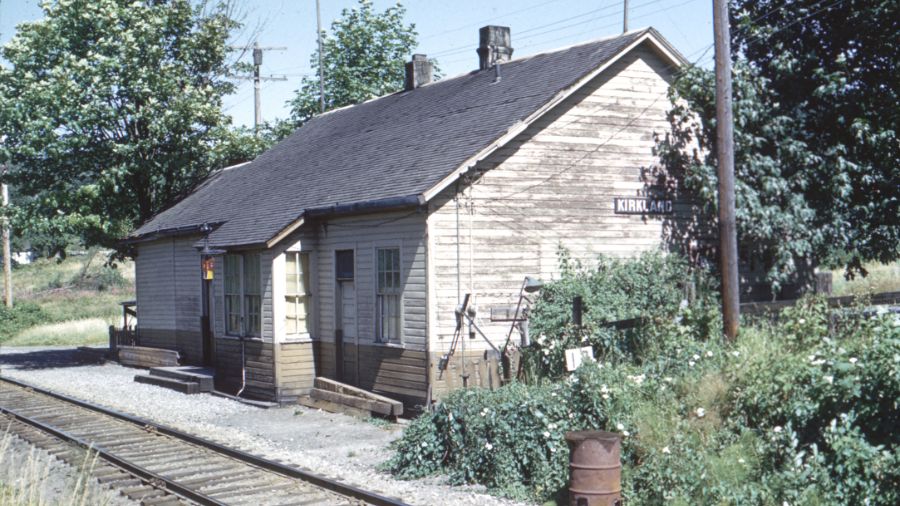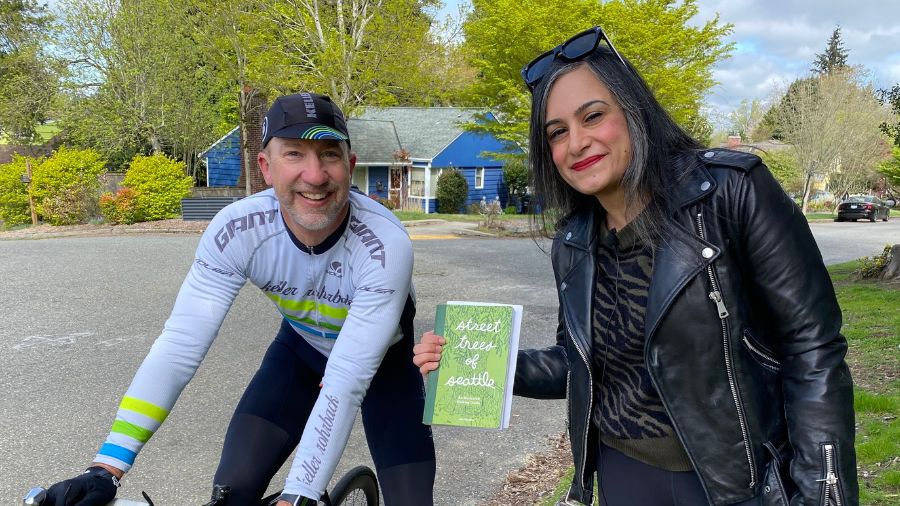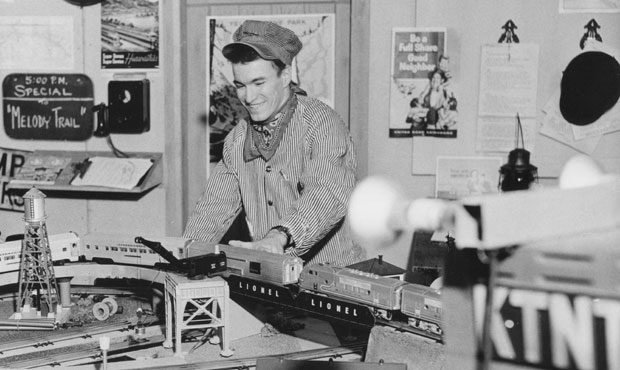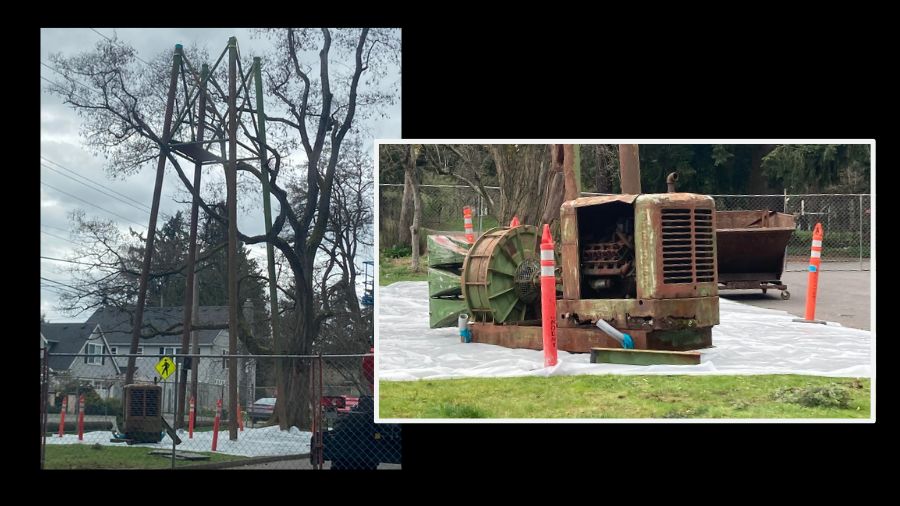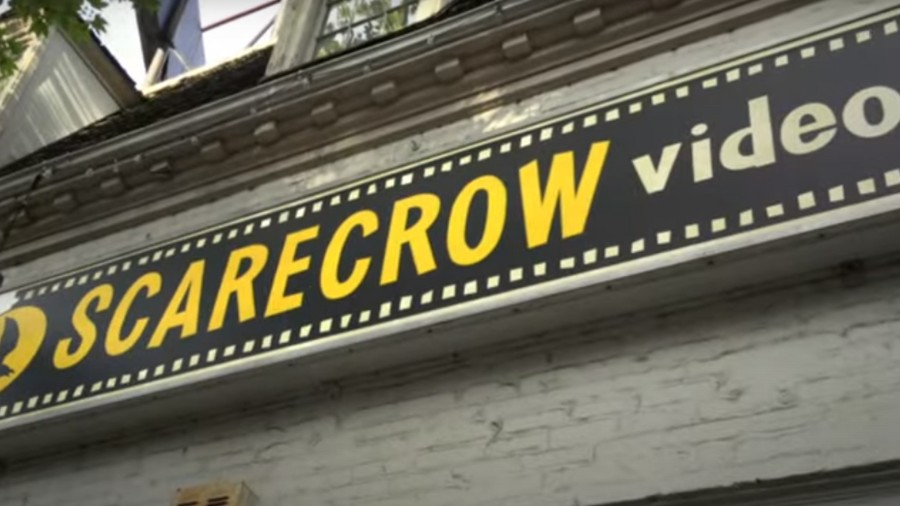Anakú Iwachá: Long out-of-print book of Yakama legends and stories is back once again
Jan 26, 2022, 8:56 AM | Updated: 9:28 am

"Anakú Iwachá: Yakama Legends and Stories" is a classic Northwest book now available again after its initial publication nearly 50 years ago. (Courtesy Yakama Nation and UW Press)
(Courtesy Yakama Nation and UW Press)
A long out-of-print book of legends and stories from the Yakama Nation – “Anakú Iwachá,” or “The Way It Was” – is available again in a new edition.
The author is Virginia Beavert. But that’s not her only name.
“My Indian name is Tuxámshish,” she said at the start of a recent interview with KIRO Newsradio.
Beavert has led – and is still leading – an amazing life. For decades, she has done so much to preserve and share Sahaptin dialects and other Native languages, as well as the culture and history of the original inhabitants of the Columbia Plateau – maybe more so than anyone else. She was born in Oregon in 1921, and grew up in the Yakima Valley with parents and grandparents who spoke many tribal dialects and languages that she learned to speak as well.
Beavert started early as a linguist. She documented the Klikitat language — which she spoke – for a researcher from Dartmouth when she was just 12 years old by helping to create written documentation. As a young woman, she raced horses at race tracks all over the Northwest. During World War II, she served in the military as a radio operator at a B-29 training base in New Mexico.
In the early 1970s, with encouragement from her family, and with federal and state grant funding that was becoming available in the early days of the “self-determination” approach to Native education – which had grown out of the American Indian Movement (AIM) in the late 1960s – Beavert spent most of a year driving up and down Eastern Washington in her Dodge, from Wenatchee to Celilo. The project was to make audio recordings of stories and legends told by elders to be compiled into a book for use in classrooms on the Yakama Reservation.
“I knew several dialects of the Yakama language, and I was hired to go out and record all these stories,” Beavert said. “And I had a deadline, so I was putting all my energy into collecting as many legends as I could find from the elders.”
It worked to Beavert’s advantage that she already personally knew many elders, and that they knew her.
“Previous to that, I had worked for the tribe, locating people for certain payments,” Beavert said. “So I knew where most of the elders lived, and then they would refer me to some others.”
It was unusual for Native people to allow themselves to be recorded, but Beavert was trusted. She found many willing narrators.
“When I explained the project the way it was explained to me, they said, ‘All right, I will record some legends for the children for their education,’” Beavert said. “And I thought that was very open-hearted about them.”
“And I told them how much I appreciated that they didn’t turn me out the door,” she said, chuckling.
“Then I had to translate these legends into English,” Beavert said. “And without assistance, I couldn’t have completed it because I had so many recordings. And we couldn’t get all of them into the book.”
Though the audio tapes were stolen back in the 1970s and never seen again, Beavert and her co-editors translated the stories and legends from multiple Native dialects into English to create the 1974 edition of the book. It quickly became an indispensable resource for educators of the Yakama Nation, and over time, became a priceless text for anyone interested in Indigenous culture and Northwest history.
Many of the legends and stories in the book relate to specific recognizable geographic landmarks — such as Steamboat Rock — which Beavert says presents a unique opportunity to transmit history and values to children – and to adults – in person, out on the landscape.
“We want to interest people like that – not only the children, but the adults who have children, … take them there to these landmarks and talk to them about the legend and tell the beautiful parts about it,” Beavert said.
But that’s not all, of course, because many of the stories and legends have lessons built into them – universal lessons present in stories told by elders to the young in all cultures.
“If you have to relate some of the hard lessons, then do it gently,” she said. The Columbia Plateau elders “had a way of putting this across to the children so that it didn’t frighten them.”
Along with the stories and legends, the original book and the new edition include dozens of illustrations – not by professional artists, but by Yakama Nation members who responded to notices tacked up on community bulletin boards by Virginia Beavert nearly 50 years ago.
“They just wanted to contribute something. And these were people that I never expected to be … artists,” Beavert said. “They came in and they said, ‘We want to contribute.’”
“I just couldn’t believe it, and I actually almost cried when they did that,” she said.
The 1974 edition was printed in a fairly limited run. Photocopied versions have circulated for decades, and on the rare occasions when actual copies of the book have turned up for sale online, they can sell for hundreds of dollars.
It’s clear that the reputation and impact of “Anakú Iwachá” goes far beyond the Northwest.
“I’ve been at international education conferences where I’ve heard experts talking about culturally responsive curriculum,” Dr. Michelle M. Jacob said. “And they pointed to the first edition of ‘Anakú Iwachá’ as a kind of wonderful model that other communities look to.”
Dr. Jacob is a member of the Yakama Nation and a professor of Indigenous Studies at the University of Oregon and, along with Virginia Beavert and Joana W. Jansen, is one of the editors of the new edition of the book.
“So that’s just a credit to Tuxámshish,” Dr. Jacob said. “And to everyone that she worked with.”
Virginia Beavert is justifiably proud of the new edition of “Anakú Iwachá.” And she’s optimistic that younger generations will do their part to preserve stories and legends, but also – as she’s been doing for most of her life – preserve Indigenous languages.
“Young people now are beginning to realize their culture is also disappearing,” Beavert said. “Because without culture, there’s no language. And without language, there’s no culture.”
“Anakú Iwachá: Yakama Legends and Stories” is published by the Confederate Tribes and Bands of the Yakama Nation in association with the University of Washington Press, and is available through booksellers everywhere.
You can hear Feliks every Wednesday and Friday morning on Seattle’s Morning News, read more from him here, and subscribe to The Resident Historian Podcast here. If you have a story idea, please email Feliks here.


